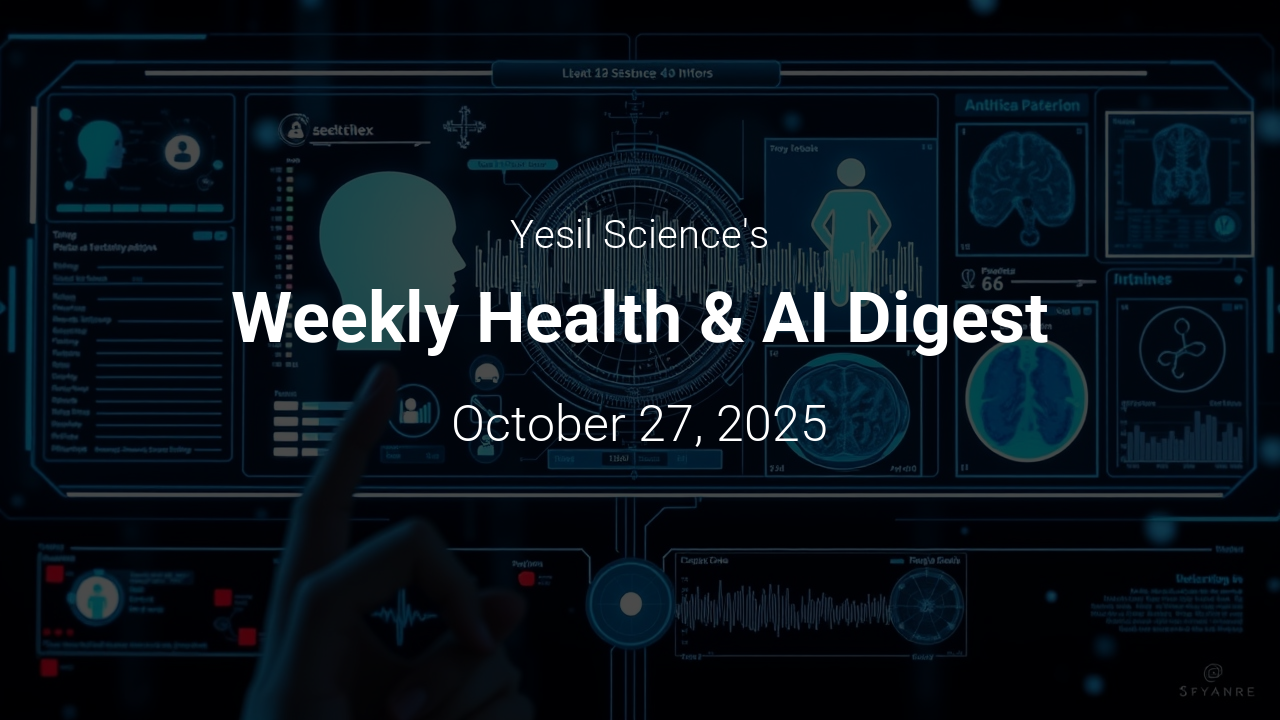Here are the latest breakthroughs in health & AI (October 27, 2025 week)
Innovative ASR models enhance transcription accuracy for ordinary and characterized speech using multi-hypotheses curriculum learning. 📊🗣️
——-
Physicians excel over ChatGPT in pharmacotherapy advice, highlighting AI’s limitations in clinical accuracy. 📊💊
——-
Predicting bipolar II to I conversion: 14% risk identified using machine learning with 86% accuracy. 📊🧠
——-
🔹 Fluorescent acid-fast stains for diagnosing mycobacteria and beyond: back to the future?
Fluorescent acid-fast stains enhance mycobacterial detection, improving sensitivity and expanding diagnostic applications. 📊🔬
——-
🔹 Transforming Speech-Language Pathology with AI: Opportunities, Challenges, and Ethical Guidelines.
AI in Speech-Language Pathology: Enhancing Diagnosis & Treatment, Yet Facing Ethical Challenges 🤖📊
——-
2024 SRB Meeting: Key Advances in Reproductive Biology 🌍🔬, Climate Impact, AI Ethics, and Inclusion in Science.
——-
🔹 Artificial intelligence-based approaches for advance care planning: a scoping review.
AI enhances advance care planning, identifying patients and aiding decisions. Key findings: 41 studies, 39 on patient identification. 📊🤖
——-
Parental insights on AI in childhood ear health reveal concerns and potential benefits. Key themes identified in recent study. 👂🤖
——-
Revolutionary AI model enhances IgG screening for antiviral therapy, targeting SARS-CoV-2 variants with 1300+ sequences analyzed. 🦠💉
——-
Automatic Speech Analysis shows 81% accuracy in detecting depression, highlighting its potential as a complementary diagnostic tool. 📊🗣️
——-
“Only 12.6% of asthma patients with obesity receive weight management in care. 📉🚑”
——-
AI in stroke care: Smart tech enhances prevention, detection, and recovery. Key findings from PubMed article reviewed. 🧠📊
——-
🔹 Deep Learning for Drug-Target Interaction Prediction: A Comprehensive Review.
Deep learning revolutionizes drug-target interaction prediction, enhancing efficiency in drug discovery. Key metrics and architectures explored. 💊🤖
——-
AI in Clinical Trials: 75% Question Response Rate! 🤖📊 89% Satisfaction Among Coordinators! Insights from Sleep SMART Study.
——-
🔹 Collaborative penetration testing suite for emerging generative AI algorithms.
New AI security suite tackles quantum threats! 🛡️ Over 300 vulnerabilities fixed, 70% high-severity issues reduced in 2 weeks! 🔒
——-
🔹 AI Analysis of Body Composition Predicts Cardiometabolic Risks
AI tools can now assess body composition in minutes, predicting cardiometabolic risks more accurately than traditional methods. 🩺📊
——-
Acoustic biomarkers and AI enhance voice disorder diagnostics, achieving AUCs of 0.735 and 0.924 for lesions and malignancy. 📊🔍
——-
Revolutionary AI model achieves 96.79% accuracy in aortic valve calcification assessment using echocardiographic images! 🫀📊
——-
That’s a wrap for this week’s digest! Stay tuned for more health & AI updates. 🚀💡
#HealthAI #TechNews
